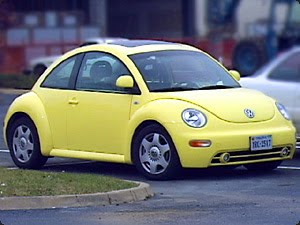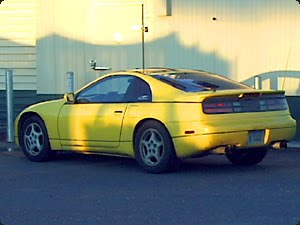
Thursday, September 10, 2009
09 09 09 Lucky numbers

Couples across New York are taking advantage of Wednesday's once-in-a-lifetime date - 09/09/09 - to tie the knot.
When Justin Allsopp, a 29-year-old child advocate, proposed to Barbara Fitzgerald, she already had the date in mind.
"Nine is my lucky number," Fitzgerald, 28, an attorney, explained.
The two also discovered that the Irish say the luckiest day to get married is Wednesday.
"I did some research and saw that there were two or three days that every culture agrees on as lucky days," said Fitzgerald, who will wed in Sandy Hook, N.J., near her and Allsopp's hometown.
"Nine, nine, nine is just lucky all around!"
The quirk of the calendar, which won't roll around again until September 2109, is considered especially auspicious for Chinese brides because the Mandarin word for "nine" sounds like the word for "long-lasting."
As one bride-to-be, Silin Trenh, 28, explained, "We picked [the date] because the Chinese meaning of the number nine is longevity."
Trenh, an office manager, and her fiancé, Thanh Von, a 31-year-old lab tech, who both split their time between Manhattan and Boston and are both Chinese-American, are planning a small ceremony at City Hall with their close friends and family, followed by a celebration at City Hall Restaurant.
The luck of nine isn't just in the sound of the word.
Nicole Lin and Joe Hill, 40, who both work with antiquities, explained that nine, because it is the highest single digit number, is associated with the Emperor of China and so will add an extra touch of class to their wedding day.
"We struck upon the date of 09-09-09 a little late in the game," said Hill, of Brooklyn, admitting the couple only picked the day about five months ago.
Thankfully, the last-minute wedding will work out.
The two chose to incorporate Lin's heritage - with an updated twist.
Though traditionally, the bride serves the groom's parents, Hill and Lin, who lives in Queens, agreed to serve each other's parents as a sign of unity. "We're serving tea to our elders," Hill said. Just to add an extra twist to the festivities at their Riverside Church wedding, the bride, who is in her 30s, will walk down the aisle in an antique Edwardian wedding gown sewn in 1909.
Who is happier
 Tall people lead happier lives than their more vertically challenged peers, according to a new study which found that most miserable men are almost an inch shorter than average.
Tall people lead happier lives than their more vertically challenged peers, according to a new study which found that most miserable men are almost an inch shorter than average.Researchers found that shorter people tended to be more dissatisfied with their lot in life.
The study interviewed more than 450,000 adults about how they viewed their life.
The volunteers were asked to place themselves somewhere on a “life ladder” and asked about their emotions.
According to the findings, people who were taller were also more likely to be positive about their life and were more likely to judge themselves as happy.
They were also less likely to feel a range of negative emotions, including sadness and physical pain, although they were more likely to experience stress and anger, and if they were women, to worry.
Men who reported that their lives were the "worst possible" were in general more than eight tenths of an inch, or two centimetres, shorter than the average height.
Women who viewed themselves as "on the bottom step" on the life ladder were shorter than the average woman by half an inch, or 1.3 centimetres.
There was also a link between height and education, the findings, published in the journal Economics and Human Biology, found.
Men who did not finish secondary school were found to be half an inch, or 1.27 centimetres, shorter than average and more than an inch, or 2.54 centimetres, shorter than the average height of those who had gone on to graduate from university.
However, there was no such clear link when it came to women, with just small differences in height.
The authors of the report, from Princeton University in New Jersey, conclude that the link between education, income and height mostly explained the link with happiness and life satisfaction.
The data was taken from the Gallup-Healthways Well-Being Index daily poll of the American population.
The red car is new
Italian : L'automobile rossa è nuova.
German : Das rote Auto ist neu.
Chinese : 那辆红色的车是新的。
Italian : L'automobile blu è nuova.
German : Das blaue Auto ist neu.
Chinese : 那辆蓝色的车是新的。
Italian : L'automobile rosa è vecchia.
German : Das rosa Auto ist alt.
Chinese : 那辆粉色的车是旧的。
Italian : L'automobile gialla è vecchia.
German : Das gelbe Auto ist alt.
Chinese : 那辆黄色的车是旧的。
The cat is black
Italian : L'automobile è nera
German : Das Auto ist shcwarz.
Chinese: 那辆车是黑色的。
Italian : Il gatto è nero.
German : Die Katze ist schwarz.
Chinese: 那只猫是黑色的。
Italian : L'automobile è gialla.
German : Das Auto ist gelb.
Chinese : 那辆车是黄色的。
Chinese : 那辆车是黄色的。
Italian : L'automobile è blu.
German : Das Auto ist blau.
Chinese : 那辆车是蓝色的。
The car is blue
Italian : L'automobile è blu.
German : Das Auto ist blau.
Chinese : 那辆车是蓝色的。
Italian : L'automobile è bianca.
German : Das Auto ist weiß.
Chinese : 那辆车是白色的。
Italian : L'automobile è gialla.
German : Das Auto ist gelb.
Chinese : 那辆车是黄色的。
Italian : L'automobile è rossa.
German : Das Auto ist rot.
Chinese : 那辆车是红色的。
The car is yellow
Italian: L'automobile è gialla.
German : Das Auto ist gelb.
Chinese : 那辆车是黄色的。
Italian : L'automobile è bianca.
German : Das Auto ist weiß.
Chinese : 那辆车是白色的。
Italian : L'aereo è giallo.
German : Das Flugzeug ist gelb.
Chinese : 那架飞机是黄色的。
Italian: L'aereo è bianco.
German : Das Flugzeug ist weiß.
Chinese : 那架飞机是白色的。
The bird is red
Italian : L'uccello è rosso.
German : Der Vogel ist rot.
Chinese : 那只鸟是红色的。
Italian : L'automobile è rossa.
German : Das Auto ist rot.
Chinese : 那辆车是红色的。
Italian : L'automobile è bianca.
German : Das Auto ist weiß.
Chinese : 那辆车是白色的。
Italian : Il pesce è bianco.
German : Der Fisch ist weiß.
Chinese : 那条鱼是白色的。
Subscribe to:
Comments (Atom)

































